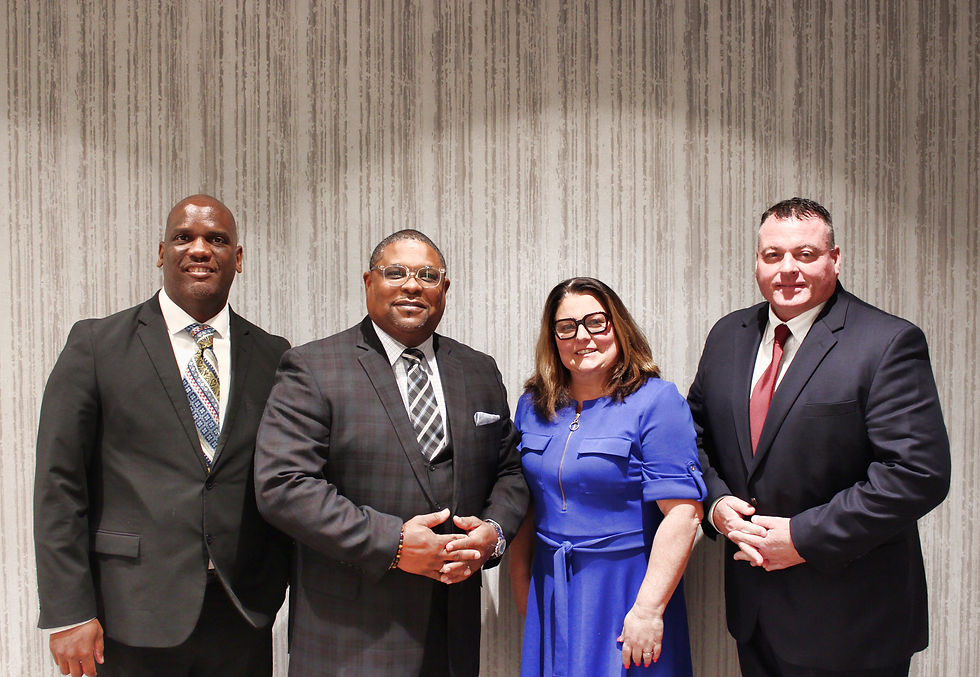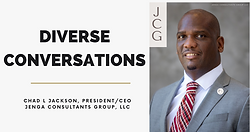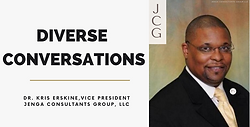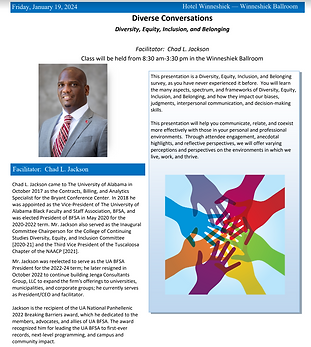Upcoming News & Events
JCG public events are listed below
_edited.jpg)
Whether you’re looking to elevate leadership skills, stay ahead of industry trends, or provide impactful educational opportunities for your workforce, Jenga Consultants Group connects you with highly qualified professionals who deliver actionable insights and transformative content.
We serve diverse audiences and understand the unique needs of each sector, ensuring that our engagements contribute to both individual and organizational success.
From large corporate trainings to intimate workshops, we offer versatile, high-quality learning experiences designed to inspire, educate, and empower professionals at all levels.
Testimonials

Change is no longer a phase—it’s a constant. In this powerful and timely session, participants will explore what it truly means to embrace change and drive meaningful transformation in today’s complex world. Whether you're leading a team, managing an organization, or guiding a community, the ability to adapt and inspire through uncertainty is essential.
This session offers a deep dive into:
-
Boosting productivity by aligning team culture with purpose
-
Leading transformational change with clarity, empathy, and conviction
-
Practicing courageous leadership in the face of resistance or fear
-
Thriving—not just surviving—in times of turbulence and transition
Blending real-world case studies, interactive reflection, and actionable strategies, this session empowers leaders at all levels to become resilient agents of change. Participants will leave with renewed confidence, a practical toolkit, and a clear sense of how to lead boldly, build trust, and create lasting impact—no matter what challenges lie ahead.

In today’s fast-paced and often high-stress work environments, civility is more than good manners—it’s a powerful driver of performance, inclusion, and trust. This engaging session explores how to foster a culture of respect where individuals feel valued, heard, and empowered to do their best work. Participants will gain insight into the real costs of incivility, understand the connection between respect and results, and walk away with practical tools to promote professionalism, collaboration, and empathy at every level of their organization.
Perfect for leaders, team members, and anyone committed to building a healthier, more inclusive workplace culture.

Thank you !




Thank You!!

2024 Ohio Municipal Clerks Association Annual Institute & Region V Meeting
Join us for the 2024 OMCA Annual Institute & Region V Meeting! The event will take place from Monday, July 15, until Thursday, July 18.


2024 FBC -LEO Annual Conference April 5, 2024







JCGSPEAKERS



JCGSPEAKERS
Dr. Chad L. Jackson, President/CEO of Jenga Consultants Group, LLC., is a 2024 Marquis Who's Who Inductee.
Marquis Who’s Who publications presents unmatched coverage of the lives of today’s leaders and achievers from the United States and around the world, and from every significant field of endeavor. Librarians, students, researchers, corporate executives, journalists, personnel recruiters, and many others rely on Marquis Who’s Who every day for in-depth biographical information they can use with confidence.
Visit: https://marquiswhoswho.com/











